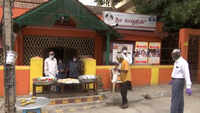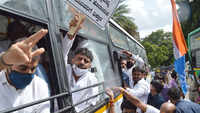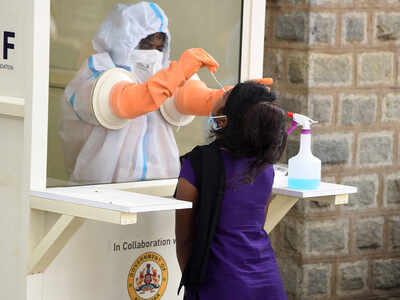
BENGALURU: Going by the state of affairs in Bengaluru Urban, Karnataka, which was the top state in Covid-19 data reporting till June 1, might go downhill in the rankings if there is another analysis.
On July 21, a Stanford University research study compared the health reportage of 29 states in India, based on how each had been sharing data and releasing analysis of the pandemic.
The study suggested the key components of managing Covid-19 were public awareness and trust in the government. And this was in turn critically dependent on timely and accessible dissemination of Covid data by the government.
At the top was Karnataka, with a score of 0.6, based on availability of data, their accessibility and granularity in providing the smallest details of virus progression. This data comparison, though, was for the period between May 18 and June 1.
Most experts within and outside the government believe since then, Karnataka has been facing a serious data compilation crisis, as the authorities are still unable to trace more than 3,000 missing Covid-positive patients. This is also largely happening due to lack of coordination with the Covid war room meant to gather data.
Things have come to such a pass that the medical education minister, who is in charge of the Covid-19 task force in Bengaluru, hasn’t been able to provide an accurate and daily data update. “There has been a serious gap in handling data reportage and analysis by the government,” said senior officials privy to the war room happenings.
While the government was able to compare, analyse and inform people about the situation in 29 districts — be it related to testing, bed allotment and movement, death rate, contact tracing, home quarantine, etc., — the same could not be done for Bengaluru Urban, which has the highest number of positive cases.
Till June 1, when the study was conducted by the Stanford researchers, cases in Karnataka and Bengaluru were traceable and manageable. However, post Unlock 1.0, which came into effect from June 8, cases started climbing and the government began facing the tough task of compiling data and analysing the same. “With the stigma associated with Covid-19, most do not want to reveal their details. They give wrong phone numbers and sketchy personal information. It has become increasingly tough for people on the ground to collate data and analyse them,” said multiple IAS officers deputed to fight the pandemic.
Add to this, the change of BBMP chief and decentralisation of Covid management have meant that none in the government has been able to give a clear picture.
On the other end, regular health briefing by the state started to stutter after political one-upmanship within the government and “other commitments” began taking precedence. Medical education and Covid-19 minister K Sudhakar, despite being asked to brief the media, and in turn allay the concerns of the common man, has been missing his schedule either due to meetings or prior commitments.
On July 21, a Stanford University research study compared the health reportage of 29 states in India, based on how each had been sharing data and releasing analysis of the pandemic.
The study suggested the key components of managing Covid-19 were public awareness and trust in the government. And this was in turn critically dependent on timely and accessible dissemination of Covid data by the government.
At the top was Karnataka, with a score of 0.6, based on availability of data, their accessibility and granularity in providing the smallest details of virus progression. This data comparison, though, was for the period between May 18 and June 1.
Most experts within and outside the government believe since then, Karnataka has been facing a serious data compilation crisis, as the authorities are still unable to trace more than 3,000 missing Covid-positive patients. This is also largely happening due to lack of coordination with the Covid war room meant to gather data.
Things have come to such a pass that the medical education minister, who is in charge of the Covid-19 task force in Bengaluru, hasn’t been able to provide an accurate and daily data update. “There has been a serious gap in handling data reportage and analysis by the government,” said senior officials privy to the war room happenings.
While the government was able to compare, analyse and inform people about the situation in 29 districts — be it related to testing, bed allotment and movement, death rate, contact tracing, home quarantine, etc., — the same could not be done for Bengaluru Urban, which has the highest number of positive cases.
Till June 1, when the study was conducted by the Stanford researchers, cases in Karnataka and Bengaluru were traceable and manageable. However, post Unlock 1.0, which came into effect from June 8, cases started climbing and the government began facing the tough task of compiling data and analysing the same. “With the stigma associated with Covid-19, most do not want to reveal their details. They give wrong phone numbers and sketchy personal information. It has become increasingly tough for people on the ground to collate data and analyse them,” said multiple IAS officers deputed to fight the pandemic.
Add to this, the change of BBMP chief and decentralisation of Covid management have meant that none in the government has been able to give a clear picture.
On the other end, regular health briefing by the state started to stutter after political one-upmanship within the government and “other commitments” began taking precedence. Medical education and Covid-19 minister K Sudhakar, despite being asked to brief the media, and in turn allay the concerns of the common man, has been missing his schedule either due to meetings or prior commitments.

Coronavirus outbreak
Trending Topics
LATEST VIDEOS
City
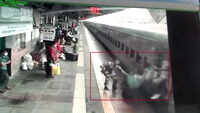 RPF personnel saves man who fell from a moving train
RPF personnel saves man who fell from a moving train  Intelligence agencies flag 'possible' Islamist terror strikes in Ayodhya on the day of Ram Mandir Bhumi Pujan
Intelligence agencies flag 'possible' Islamist terror strikes in Ayodhya on the day of Ram Mandir Bhumi Pujan 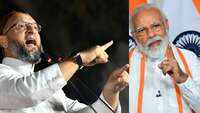 AIMIM chief Asaduddin Owaisi slams PM Narendra Modi's plans to attend Ram Temple bhumi pujan
AIMIM chief Asaduddin Owaisi slams PM Narendra Modi's plans to attend Ram Temple bhumi pujan  Armed men barge inside house in UP's Ghaziabad, misbehave with female members, take away valuables
Armed men barge inside house in UP's Ghaziabad, misbehave with female members, take away valuables
More from TOI
Navbharat Times
Featured Today in Travel
Get the app
